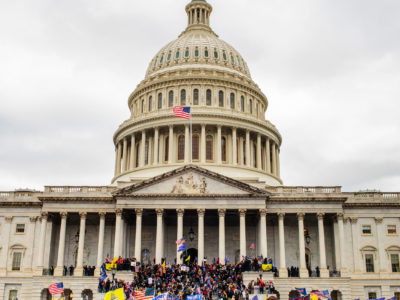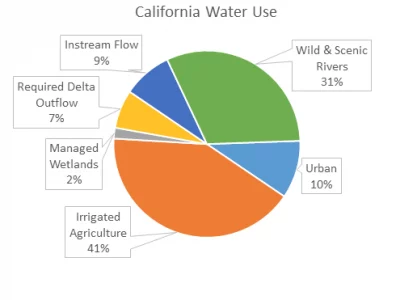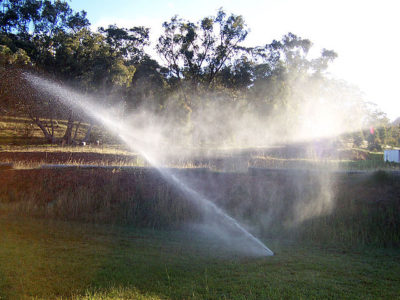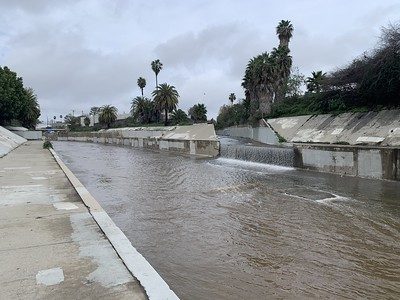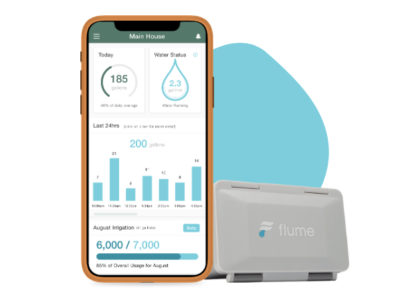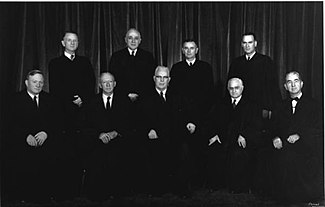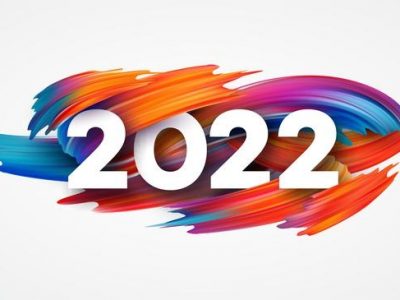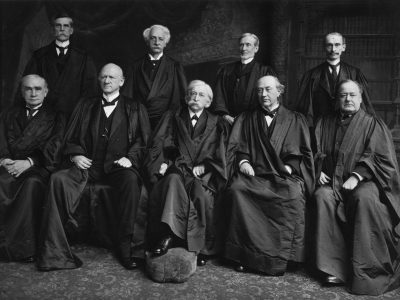Water
Wetlands Regulation in the Political Swamp
The Congressional Review Act remains bad for policy and worse for democratic deliberation.
Last December, the Biden administration issued a rule defining the scope of the federal government’s authority over streams and wetlands. Congressional Republicans vowed to overturn the rule, using a procedure created by the Congressional Review Act. If Congress is going to repeal something, it should be the Congressional Review Act rather than the Biden rule. …
Continue reading “Wetlands Regulation in the Political Swamp”
CONTINUE READINGWhat Is Water Use, Anyway?
We Have Met The Enemy, And He Is Us
We all know the story, and the percentages: of water used by human beings in California (i.e. not going to environmental uses), agriculture uses a whopping 80%. So it makes little sense to call on urban users to conserve, so the story goes, until ag goes first. Certainly nonprofits like Food and Water Watch think …
Continue reading “What Is Water Use, Anyway?”
CONTINUE READINGAre Front Lawns Unconstitutional?
In California, They Are
Textually, this is not difficult. Article X Section 2 of the California Constitution reads: The right to water or to the use or flow of water in or from any natural stream or water course in this State is and shall be limited to such water as shall be reasonably required for the beneficial use …
Continue reading “Are Front Lawns Unconstitutional?”
CONTINUE READINGHow Much Rain is L.A. Capturing?
Local measures like Measure W are working. But more needs to be done to capture stormwater and rainwater.
At least nine atmospheric rivers blasted California between December 20th and January 15th, causing flooding and extensive damage, while also delivering much needed precipitation to our parched state. The Los Angeles County Public Works Department announced recently that more than 33 billion gallons of stormwater have been captured in the early months of the winter …
Continue reading “How Much Rain is L.A. Capturing?”
CONTINUE READING…In Which I Attempt To Read My Water Bill
Failure To Install Smart Water Meters Is Wasting Billions of Gallons Each Year
I felt at least decently about myself when I paid my water bill recently, because I was told that my usage was somewhat better than other people in my neighborhood (which is a low bar, but you take what you can get). But when I tried to figure out why it was better, I got …
Continue reading “…In Which I Attempt To Read My Water Bill”
CONTINUE READINGLearning to Name Environmental Problems
It was only in the 1960s that the Supreme Court learned to talk about “pollution” and “wilderness.”
There are Supreme Court cases going back a century or more dealing with what we would now consider environmental issues such as preserving nature or air pollution. But when did the Court start seeing filthy rivers and smokey cities as embodiments of the same problem, despite their striking physical differences? And when it did start …
Continue reading “Learning to Name Environmental Problems”
CONTINUE READINGThe Year Ahead
Here are the top ten environment and energy developments to watch for.
Here we are, starting another year. Last year turned out to have some major environmental developments. The most notable were the Supreme Court’s ruling in West Virginia case, striking down the Clean Power Plan, and the passage of the Inflation Reduction Act, with its huge economic incentives for clean energy. Here’s quick rundown of what …
Continue reading “The Year Ahead”
CONTINUE READINGThat Was The Year That Was
The Biggest Environmental Stories of 2022
A lot has happened on the environmental front. Here are the biggest stories of 2022. Congress passed the Inflation Reduction Act, providing $369 billion in tax credit and spending to reduce carbon emissions. California banned the sale of new gas cars in 2035, with several other states now agreeing to follow suit. The Democrats lost …
Continue reading “That Was The Year That Was”
CONTINUE READINGThe Passing of a Respected Water Warrior
Remembering California Water Law Attorney Clifford Lee
Clifford (Cliff) Lee, one of California’s most knowledgable and respected water law experts, died suddenly late last month. His passing leaves a tremendous void in the field of California water law and policy. After earning his undergraduate degree from U.C. Berkeley, Cliff attended law school at U.C. Davis and quickly became entranced by water law. …
Continue reading “The Passing of a Respected Water Warrior”
CONTINUE READINGThe Supreme Court’s Earliest Pollution Cases
Long before Congress, a notoriously conservative Court started taking pollution seriously.
Well over a century ago, the Supreme Court ruled that it had that power to remedy interstate water pollution. That was in 1901. Six years later, the Court decided its first air pollution case. Notably, these cases came during the conservative Lochner era when the Court was hardly known for its liberalism. Quite the contrary. …
Continue reading “The Supreme Court’s Earliest Pollution Cases”
CONTINUE READING




